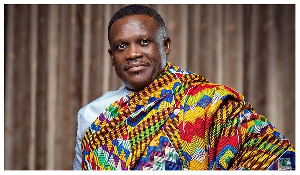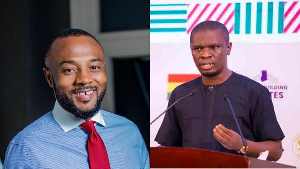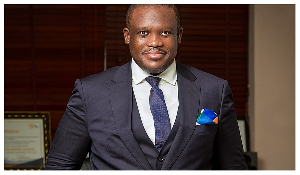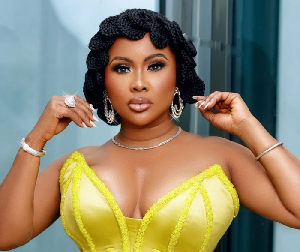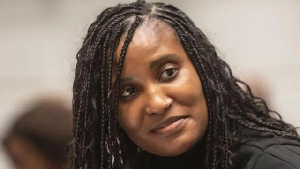These days when I think about the state of affairs in Ghana, I metamorphose into a nervous wreck. I feel that all well-meaning Ghanaians should be nervous wrecks. But are they?
In many ways I feel Pierre Teilhad de Chardin, and that isn?t a good feeling. To feel Pierre Teilhad de Chardin is tantamount to identifying with that Jesuit Theologian observation that ?? a great many internal and external portents (political and social upheaval, moral and religious unease) have caused us all to feel more or less confusedly, that something tremendous is at present taking place in the world. But what is it?? And that is exactly how I feel about Ghana. I feel confusedly that something is taking place in our country. But what is it?
The Ghanaian political landscape is filled with a great deal of tension. Not that this is new to the body polity ? as long as I?ve lived, political tensions have always been our zeitgeist. The country has a colorful history of political tensions, most of which had played no small role in shaping the course of our destiny. However, the current air of political tension in the country should be treated with a great deal of attention, because it has the potential to decide for us the type of country we want for ourselves: that is, whether we?ll continue with our ongoing democratic experiments or go back to the old days of political monopoly.
I don?t want to be an alarmist. I don?t want to be a Prophet of Doom. All I know is that the more I think about the political tensions in Ghana, the more I become a nervous wreck.
A significant portion of the political tensions in the country can be attributed to the strained (to put it mildly) relations between our two living presidents. Particularly in a developing country, any time the relationship between a sitting president and his/her predecessor is defined by one of the lowest forms of Schopenhauer human instincts- hatred - you know you have a big problem.
One side of the problem is that we have a sitting president who behaves as if he?s an ex-president.
The other side of problem is that we have an ex-president who behaves as if (and probably thinks that) he?s still the president of the country. In effect, we seemingly have two competing presidencies, one characterized by passive aggression and the other aggressive passivity.
You have to admire President Kuffour for the consistency of his presidential temperament. No wonder his moniker ?Gentle Giant?. But propriety can be a liability, especially if it isn?t backed by firmness.
In many ways the President is a Prufrock, and the corridors of our government are crowded with Prufrocks. Prufrock is the character from T.S. Eliot?s The Love Song of J. Alfred Prufrock. Prufrock agonizes over his social actions, worrying over how others will see him. Prufrock goes to a social engagement, thinks about women?s arm and perfume but he cannot muster the strength to act, and he admits that he is afraid. Prufrock is modern-day Hamlet, the paragon of paralysis. Not only is the President a Prufrock, but also he may be suffering from leadership protanopia. So there you have it ? a presidency enfeebled by protanopic Prufrockian paralysis.
I am particularly struck by the president?s silence over, or at best timid defense of, allegations of corruption and impropriety against certain members of his government. Granted that these were allegations, one would have expected the president to be proactive in asking for investigations until the affected people have been cleared of all wrongdoings before giving them a place in government. The inability (or the deliberate refusal) to dare anything is pronouncedly becoming the Achilles heel of President Kuffour, as the public?s perception of corruption in his administration increases. And the more the public perceives his administration as corrupt, the more he loses the moral authority as a leader, fueling the political tension in the country.
If you admire President Kuffour for the consistency of his presidential temperament, you also have to admire former President Rawlings for his chutzpah, occasional provinciality and the consistency of his ranting. The ex-president?s behavior is an exemplar of finding importance through unimportance. Or maybe his is an exemplar of rendering oneself unimportant by pretending to be important.
While Kuffour dares to do nothing, Rawlings dares to do anything, even if it means destabilizing the whole country. In a sense Rawlings is a Brutus. In a somewhat perverse way, however, I wished we had many more people in Ghana ranting about the wrongs in our country but with some izzat. However, when the pot tells the kettle that it?s black, you have to wonder if moral authority hasn?t gone to the swine. After nearly two decades in the helm of affairs of Ghana, characterized by political intimidation, corruption among some of his ministers, and a period of very little economic progress, you?d think that the ex-president would realize that he has lost all moral authority to rant about these issues. The irony of all this is that Rawlings rants under the guise of championing the cause of the ordinary people. But two decades of Rawlingsocracy and the Freudian slips left by his recent rants show that Rawlings rants primarily for Rawlings and his family.
And so the tension continues.
It?s tension primarily engendered by apparent animosity between two Presidents - one who has lost almost all credibility and moral authority because of political overreach and overzealousness and the other who may be losing his credibility and moral authority because of political inaction.
If our Christian church leaders cannot get the two presidents to resolve their differences and thus reduce the political tensions in the country because some perceive the mediators as having no moral authority to do so, then whom do we turn to for moral authority in Ghana today? In the face of all these political tensions, Ghanaians have a choice: to let the current democratic experiments continue or slip into the hellish days of political monopoly and authoritarianism. I hope we have the wisdom and experience to stick with the current experiment despite all of its inadequacies.
In the meantime, I feel confusedly that something is taking place in our country. But what is it?







